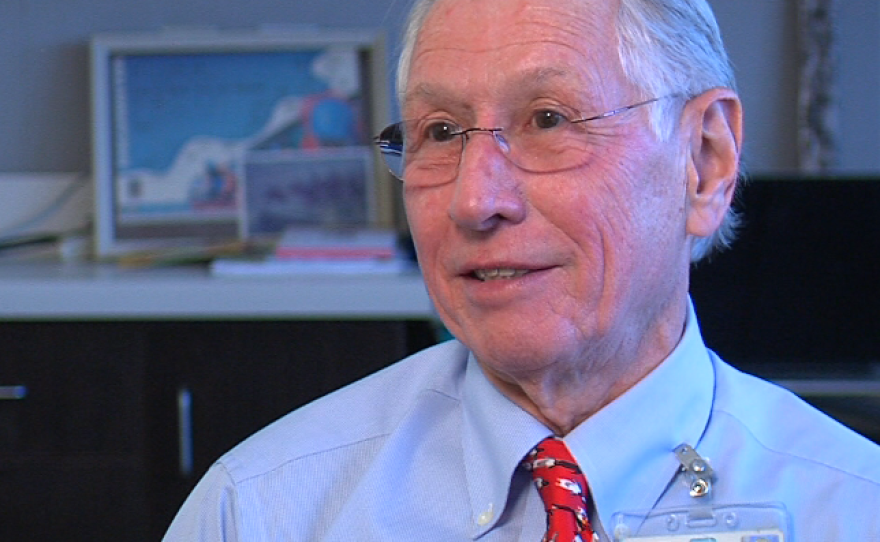Police can use breathalyzers to catch drunken drivers. But they don’t have a great way of identifying stoned drivers. Scientists at UC San Diego are hoping to change that.
California legislators have tasked local researchers with developing a simple roadside test to measure drivers’ levels of marijuana intoxication.
Igor Grant, director of UC San Diego’s Center for Medicinal Cannabis Research, said the study will involve giving marijuana of varying potency to research participants. Then, over the next seven hours, the participants will take cognitive tests on an iPad and enter a driving simulator a number of times.
“One of the points of this study is to look over a period of hours after somebody has consumed, and regularly measure their driving performance,” Grant said.
The researchers will take samples of the participants' blood, saliva and breath throughout the process.
Previous studies have shown that smoking pot can lead to impaired driving. But there still isn’t an accurate test for determining how impaired a particular driver is at any given time. That's because, unlike blood alcohol levels, blood THC levels don't strongly correlate with driving impairment.
The mere presence of THC in the bloodstream doesn’t necessarily mean a driver is currently high — low levels can be detected long after marijuana’s acute effects subside. Conversely, drivers can still be high even when their blood reveals fairly low levels of THC, according to UC San Diego psychiatry professor Tom Marcotte, one of the scientists leading the study.

“When a person smokes marijuana, their blood levels go up very rapidly and then decline fairly rapidly,” he said. "But a person could still be high, even when blood levels are declining."
Police often use the standardized field sobriety test on drivers they suspect are stoned. The test involves eye-tracking, walking a straight line and standing on one leg. UC San Diego’s Barth Wilsey, also involved in the new research, says that’s a flawed approach when it comes to marijuana.
“Studies have been done where people ingest marijuana, and that field sobriety test is given to them,” he said. “About 50 percent of them pass it. And if they’re frequent users of marijuana, about 70 percent of them can pass it.”
Linda Hill, a UC San Diego professor and driving safety expert who is not involved in the new project, supports further research into the effects of driving while high. She said the topic has been understudied.
"Cannabis brings some unique challenges to driving,” she said. “There is variability in impairment between users at a given blood level."
It’s unclear what researchers will use to establish a uniformly safe intoxication threshold for drivers who use marijuana. Hill said when it comes to alcohol, driving within the legal threshold can still lead to increased risk.
“The only sensible approach to driving is to abstain from alcohol and drugs before getting behind the wheel,” she said.
Research on marijuana is often difficult to carry out in the United States, due to steep regulatory hurdles.
The Drug Enforcement Administration classifies marijuana as a Schedule 1 drug, meaning it believes the drug has “no currently accepted medical use.” But the UC San Diego researchers will be permitted to administer marijuana to study participants because they have a Schedule 1 license from the DEA.
Before conducting the study, they’ll have to retrofit their lab to confine marijuana smoke.
“As you can imagine, you can’t have smoke drifting all over the place,” Grant said.
The UC San Diego researchers say they don’t know of any other active research projects dedicated to developing a field test for marijuana intoxication.
California voters could choose to legalize recreational marijuana in the state as soon as November. However, it could be a long time before scientists develop a reliable field test for marijuana intoxication. Grant estimates this study will take about three years to complete.






